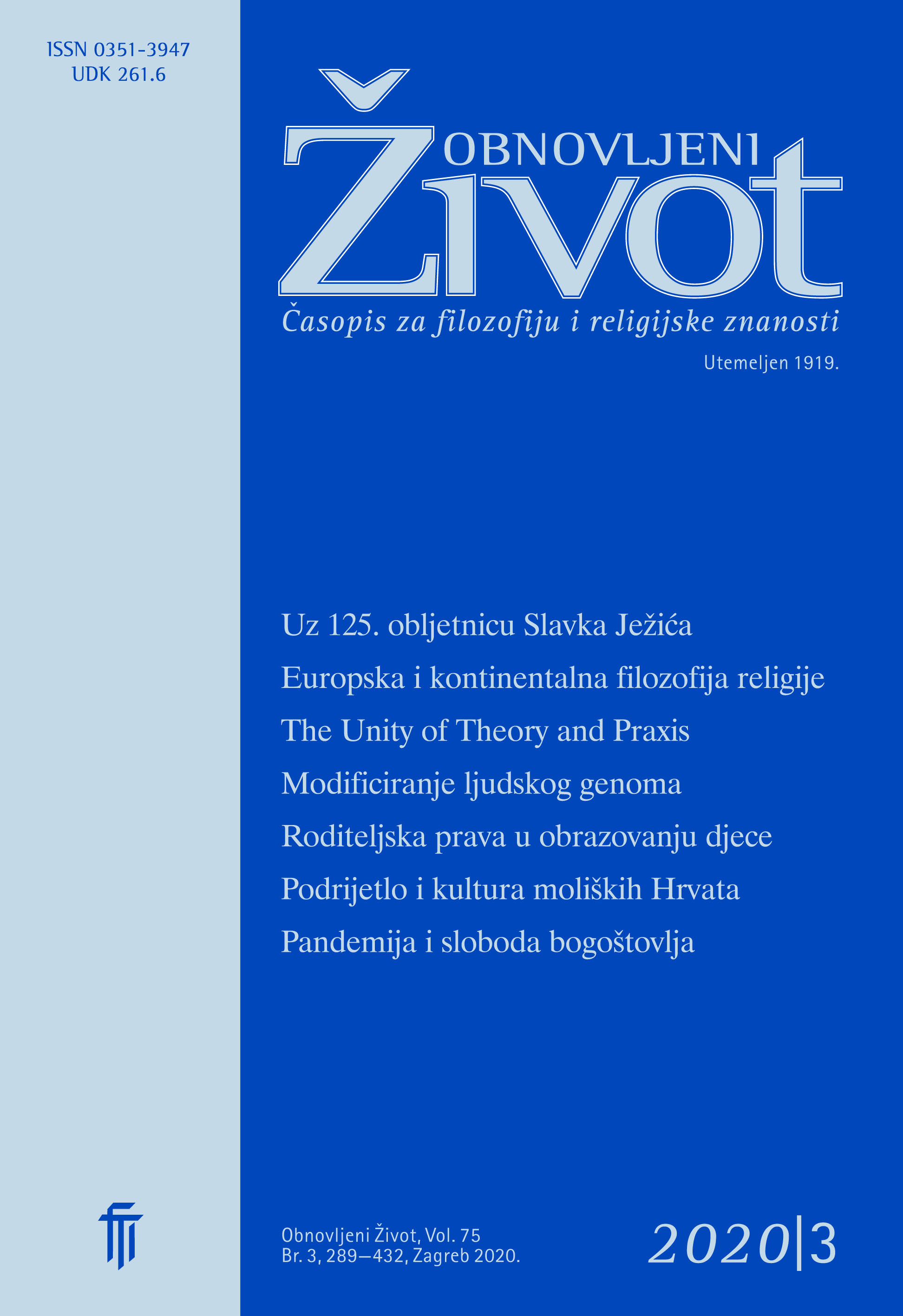The Philosophical–Religious Aspects of the Similarities and Differences between Chesterton and Guardini
Keywords:
Romano Guardini, Gilbert Kyle Chesterton;, common sense, personalism, religion, modernity, faithAbstract
In this exposition we have attempted to compare the thoughts of Chesterton and Guardini with the intention of better understanding the different interpretation of Anglo–American and Continental traditions in the philosophy of religion of the West during the late 19th and early 20th centuries. In the first and second sections we have briefly described the work and interests of these authors and in the third and fourth made a critical analysis of certain subjects in the philosophy of religion which, at the same time, bring them close to each other and divide them. Although Chesterton is familiar with Neo–Scholasticism, in his polemic discussions he uses the pragmatic and common–sense approach to questions concerning the history of religion, and the appearance of positivism and evolutionism, which is the main difference in relation to Guardini who is closer to phenomenalism. Although Chesterton and Guardini are representatives of different traditions and different methodologies, one theme brings them together: a critique of modernity developing in light of the crisis in Christianty and scientific advancement which tells us that their personal insights are not quite as far from one other as one may surmise.
Downloads
Published
Issue
Section
License
Jednom prihvaćeni članak obvezuje autora da ga ne smije objaviti drugdje bez dozvole uredništva, a i tada samo uz bilješku da je objavljen prvi put u Obnovljenom životu. Uredništvo će obavijestiti autora o prihvaćanju ili neprihvaćanju članka za objavljivanje.
Članci objavljeni u časopisu se, uz prikladno navođenje izvora, smiju besplatno koristiti u obrazovne i druge nekomercijalne svrhe.


